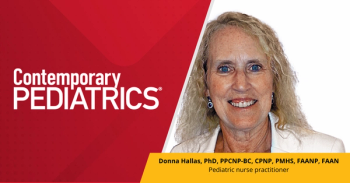Drs Saporta-Keating and Nyquist’s article, State of the union on COVID-19, provides a detailed review of how scientists and health care providers have unraveled some of the complexities of the coronavirus disease 2019 (COVID-19) over the past 11 months. Much of what has been learned worldwide has been garnered from adult populations who were diagnosed with COVID-19. Seniors and vulnerable populations have suffered tremendously and have died in large numbers in the United States and worldwide. As we know, COVID-19 has adversely affected children who experienced multisystem inflammatory syndrome in children (MIS-C). International efforts to diagnose and treat MIS-C were presented as soon as the newly identified symptoms emerged, first in England, and then in New York City. I vividly recall listening to the first group of physicians from England and the United States discuss the presenting symptoms and the newly identified syndrome. As of this writing, some states that are surging with new adult cases are also reporting MIS-C cases in children. Some children diagnosed in April 2020 with MIS-C are currently experiencing the after effects of the MIS-C diagnosis and only time will tell how the overall health of these children may be affected.
There is hope as vaccines are administered
The US Food and Drug Administration’s (FDA) emergency authorization for 2 vaccines from Pfizer and Moderna represents hope and shines a light for all at the end of this dark tunnel. The remarkable safety and efficacy data for both of these vaccines and the potential for additional vaccine approvals, provides further support for hope. In addition, Pfizer and Moderna are planning clinical studies to investigate the safety and effectiveness of their vaccines in the pediatric population. All pediatric providers look forward to reading and reviewing the results of these studies. As we wait for these results, all pediatric providers can encourage parents and grandparents who are eligible to receive the vaccine to get vaccinated. Pediatric providers have a unique body of knowledge about vaccines, as we administer 23 vaccines to infants in the first 24 months of life, and then continue to administer vaccines into the adolescent and young adult years. We know and understand vaccine hesitancy and vaccine refusers. We are skilled communicators and can use this skill set to encourage all those eligible to take the vaccine.
Focus on mental health
The mental health and well-being of our pediatric and adolescent patients is and has been front and center throughout this pandemic. We cannot talk about COVID-19 without acknowledging the real and potential mental health trauma that children/adolescents and their parents are experiencing on a daily basis. Dr Man’s article, Pandemic pediatric tips for mental health, provides 10 tips that pediatric health care providers may prioritize as part of routine primary care office visits. Are there other ways that pediatric providers can help with the mental health of the populations that they serve? Is it feasible to offer a bi-monthly Friday night Zoom ‘talkathon” for parents and/or their children? Parents and children trust their pediatricians and pediatric/family nurse practitioners and pediatric nurses. Sharing the responsibilities among office-based pediatric health care providers is one way to make such an option feasible. A 10-minute digital access presentation on a topic of interest to parents, eg, “My child feels anxious: What can I do?”; “My child feels lonely having classes only on Zoom: What can I do?”; “Coping skills 101: How do I help myself and my children apply effective coping skills in this pandemic?”; and/or other topics relating to children or parenting during this pandemic would most likely be very popular. The 10-minute presentation can be followed by a 5-minute pre-screened question and answer period. It may be that a virtual 15-minute meeting twice a month or weekly, for larger practices, may inspire communities to continue on a lighted path that leads us out of this pandemic with newly acquired coping skills that reduce the burden of COVID-19 induced behavioral and mental health issues.








